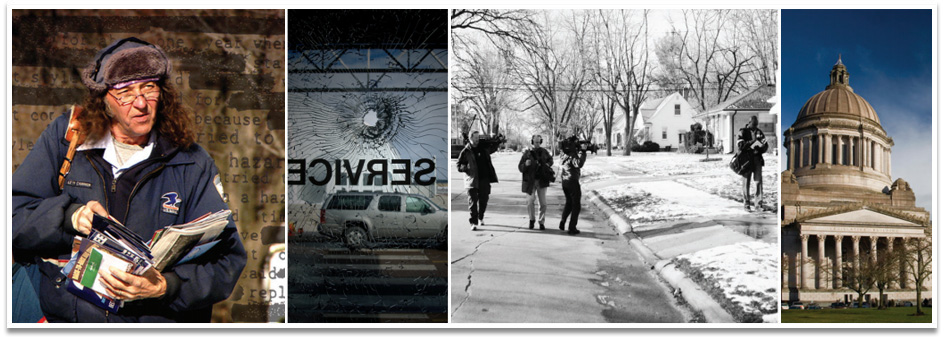
What drove you to make this film?
Documentaries are typically driven by a desire to tell an important story, oftentimes, a story behind a story. That was my motivation as well.
How did you become interested in the subject matter?
It began with my curiosity about the origin of the phrase “going postal”. My research led me to believe that the true complexity and significance of this phenomenon were being overlooked. I felt that it warranted more than just a cursory review of media reports.
What is, in your opinion, the true significance of the going postal phenomenon?
I think the film clearly shows that these incidents are the result of certain conditions that make people feel dehumanized and oppressed. When you start seeing so many of these incidents happening in so many places it means that those conditions are widespread. And if they are, then these so called “going postal” incidents are just the beginning. The way I saw it, they were just symptoms of a latent societal crisis.
What do you think makes your film relevant today?
I was filming Murder by Proxy before the financial crisis of 2008. A lot of the issues that we identified in the film as contributing factors to the rise of the going postal phenomenon are the same issues that today are in the forefront of public discussion thanks, in large part, to the Occupy Wall Street movement. But back when we were still in the production process, there was no widespread public discontent with rising income disparity, unchecked corporate greed, disregard for wellbeing of workers, etc. I think it’s telling that when we held a test screening for representatives of major studios, many people thought that I had a pro-union agenda. The financial crisis changed everything. Now, virtually everyone who views the film recognizes that I was simply drawing conclusions from my observations.
Do you think that this phenomenon may graduate into different, large-scale violence in our society?
I think there’s certainly a potential for that. As I mentioned, I saw “going postal” incidents as symptoms of a larger societal problem. This phenomenon may seem uniquely American, but it really isn’t. In fact, many revolutions, including the Russian Revolution and the American Civil War, were almost always preceded by these kinds of bloody individual uprisings that at first seem baffling and unexplainable to their contemporaries. These individual rebellions may take decades before graduating into something larger.
In the Soviet Union, where I was raised, we spent a lot of time in school studying revolutions and how they develop. The classic definition of a revolutionary condition is when the lower class no longer wants to tolerate the status quo and the upper class can no longer maintain the status quo. I think this is being clearly manifested by the emergence of the Occupy movement on one end of the spectrum and the Tea Party movement on the opposite end of the spectrum. Both movements are becoming increasingly vocal and impatient and neither is likely to get most of what they want. Furthermore, the success of one side is going to result in inversely proportional anger of the other side.
Does your film have a political agenda?
No. The film doesn’t have a political agenda. But it does have a moral one. There’s a point of view that I’m trying to present. And that point of view is that the current form of capitalism, this predatory corporatism, is morally wrong and detrimental to the future of our society.
What impact do you hope your film to make? Do you have a solution to this problem?
This is a very complex problem that goes beyond any one workplace or any one mass shooting incident. I think it would be extremely arrogant of me to pretend I have a solution to such a massive societal problem. My goal is to change the way people think and analyze “going postal” incidents.




